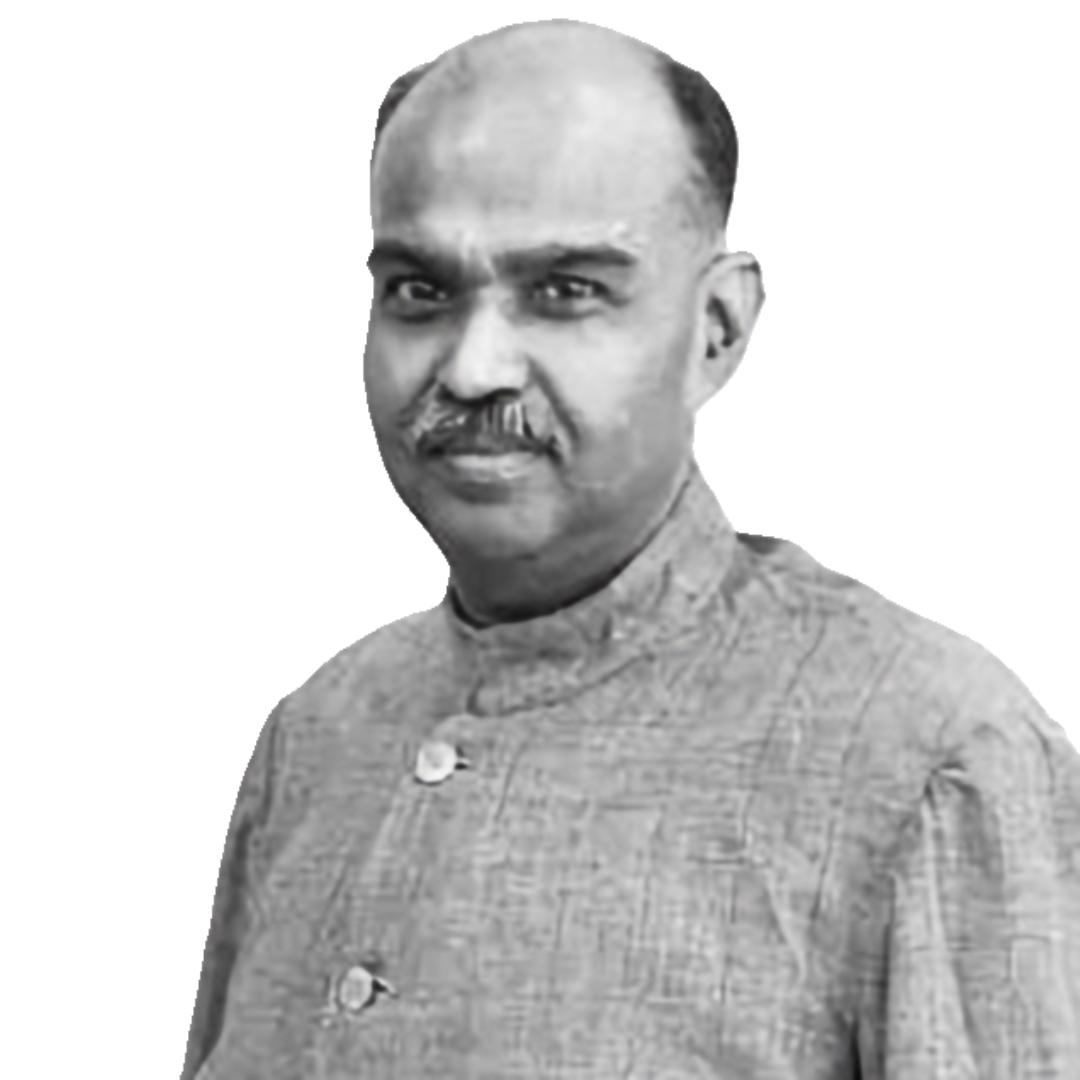Syama Prasad Mookerjee

Dr. Syama Prasad Mookerjee was born on July 6, 1901, in Calcutta. His father, Ashutosh Mookerjee, was a renowned judge of the Calcutta High Court. A brilliant student, Mookerjee graduated from Calcutta University in 1924 and enrolled as an advocate in the Calcutta High Court the same year. He then went to England to study law and became a barrister in 1927.
Active in Bengal politics, Mookerjee was elected as a member of the Legislative Council of Bengal as an Indian National Congress candidate in 1929. He resigned the following year and was re-elected as an independent candidate. In 1934, at the age of 33, he became the youngest Vice-Chancellor of Calcutta University. During his tenure, he ended the dominance of English and included Bengali as an examination subject for the first time.
During the Bengal famine of 1943, Mookerjee mobilized resources and organized large-scale relief efforts. When partition became a reality, he worked hard to safeguard India’s interests. After Independence, he was included in Pandit Nehru’s Interim Central Government and became India’s first Minister of Industry and Supply. He resigned from the cabinet in 1950 in protest against the Delhi Pact with Liaquat Ali, orchestrated by Prime Minister Nehru.
In 1951, Mookerjee co-founded the Bharatiya Jana Sangh and was elected as a Member of Parliament in the 1952 elections. He strongly opposed Article 370, which granted special status to Jammu and Kashmir, and launched a movement for its removal. In 1953, he traveled to Kashmir but was arrested upon arrival and detained in a Srinagar jail. His health deteriorated, and he later died in custody.
Trivia : During Dr. Syama Prasad Mookerjee’s term as Vice-Chancellor, Rabindranath Tagore delivered the university convocation address in Bengali for the first time.
References:
- Eminent Parliamentarians Monograph Series - Dr. Syama Prasad Mookerjee
- Dr. Syama Prasad Mookerjee - BJYM
- Remembering Shyama Prasad Mukherjee: The Founder of Bharatiya Jana Sangh - India Today